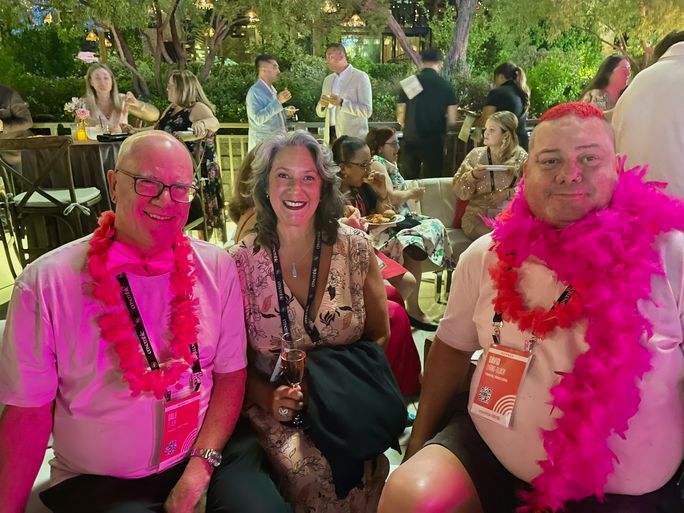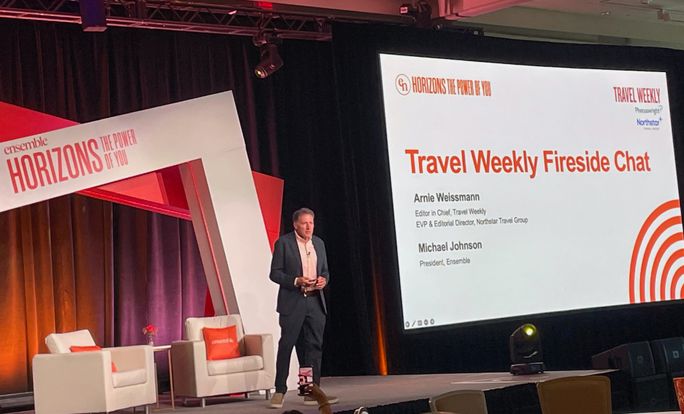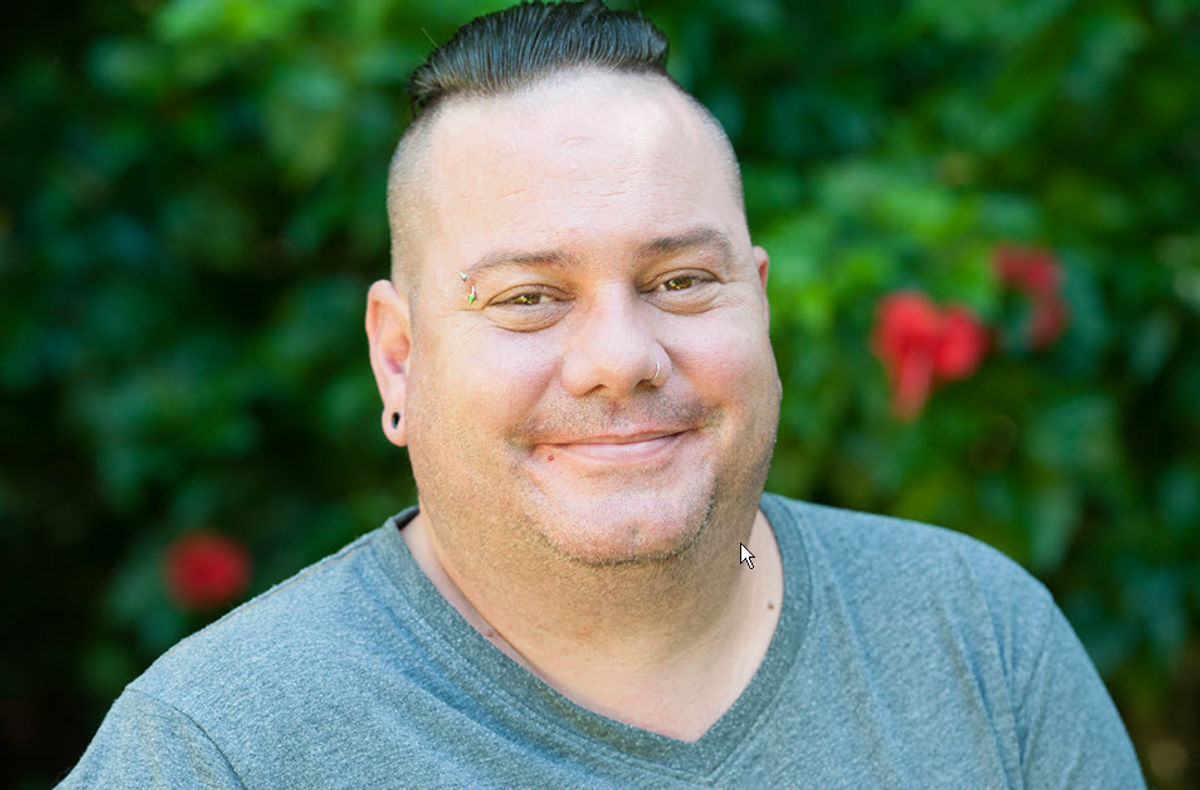Accessible travel expert and advisor David Lyons-Black has been in the business more than 25 years. But planning trips for people with limited mobility wasn’t always his focus.
That skill was developed in the years following 2006, when he contracted encephalitis, an inflammation of the brain caused by an infection or autoimmune response. He spent 19 weeks in hospital, and, due to damage to his lower extremities, has been a wheelchair user since.
“I thought I could never travel again,” Lyons-Black told TravelPulse Canada at the recent Ensemble Horizons conference in Las Vegas.
People who loved him thought differently, and challenged him to fly to Chicago to visit a friend. He did it, accompanied by his husband in one direction, making the return trip on his own.

David Lyons-Black, (right), with husband Dale Black, (left) and Tamara Mallin, Director Sales, Growth & Strategic Partnerships, Fresh Tracks Canada at the Ensemble Horizons conference in Las Vegas. (Photo Credit: Bruce Parkinson)
“It was terrifying. I thought, ‘Is my chair going to make it? Am I going to make it?’” But the trip was a success, and Lyons-Black decided “I can do this.”
In the years since, he has travelled solo to Europe and visited many other countries. He’s not going to tell you it’s been easy, because it hasn’t – and still isn’t. Years ago, he was turned down for a fam because the operator feared liability issues. Just last year he says he was rejected for another fam trip after being told he would be “too much work.”
“I have tough skin, but that still hurt,” he says.
Dealing with the many obstacles has made Lyons-Black an expert on accessible travel, and his experiences have made him a passionate advocate for “barrier-free” travel. “This is not a niche market,” he says. “It’s a fundamental human right.”
Just as advisors should avoid quoting trips based on their own budget, those working with travellers with physical challenges must recognize that “every person is different” and has different needs, Lyons-Black says. That means lots of qualifying questions.
Noting that there are “no guarantees” when booking accessible rooms at all-inclusive resorts, Lyons-Black reaches out to BDMs to ensure his clients receive the accommodations and services they require.
As much as he’s been disappointed by the lack of awareness of accessible travel in some travel companies, he says others will “bend over backwards” to assist. He singles out Freddie Marsh, BDM for Playa Hotels & Resorts, as someone “who will work with anybody in accessible travel,” by reaching out directly to resorts to ensure travellers are well looked-after.
“Working with BDMs, you have to have hard conversations about things like bowel movements and catheters. We have no filters and we don’t care. We’ve lost things. We need to ask the right questions which means close communication with the clients,” Lyons-Black says.
Air travel is one area where there has been significant improvement in the past few years, Lyons-Black says. He specifically cites Air Canada, which is implementing a three-year plan to better accommodate passengers with physical needs. “They’re investing in transfer teams and equipment like Eagle lifts, and it is making things easier.”
(Eagle Passenger Lifters are devices designed to offer a safe and efficient way of transferring passengers who are unable to access their aircraft seat unaided.)
Lyons-Black praised the leadership of Air Canada’s Director of Customer Accessibility Kerianne Wilson since assuming the role in August 2023. TravelPulse Canada was there when spoke at the ACTA Summit in Toronto in September. A lawyer who became passionate about accessibility, she says there’s momentum in taking down some of the physical barriers to travel.
“This is why it’s such an exciting time to be working in accessibility,” Wilson said. “I think we’re on the cusp of a really important change. This is my goal — making travel more accessible.”

Travel Weekly Editor in Chief Arnie Weissmann at the Ensemble Horizons conference. (Photo Credit: Bruce Parkinson)
As Travel Weekly Editor-in-Chief Arnie Weissmann noted during a trends discussion at the Ensemble conference, improvements in accessible travel are partially being driven by the Boomer segment, which has the “time, money and interest in travel,” but often has physical limitations.
“If you’re looking for an expertise to develop, this definitely could be one,” he said.
Lyons-Black says there’s lots that needs to change and improve in accessible travel, but he’s also grateful to be able to explore new destinations, and help others do the same. The ‘About Me’ section on his website describes his philosophy and approach well.
“While the travel industry is finally moving toward assisting those looking for barrier free travel, with 18 years of experience, I am already serving my clients with disabilities by helping build amazing dreams and memories. With 24 countries travelled, many as a tourist or travel professional in a wheelchair, I am excited to share my wealth of experience, current travel news, tips and tricks that will take my clients from ‘armchair wannabe travellers’ to well-travelled, real adventurers – barrier free!”

